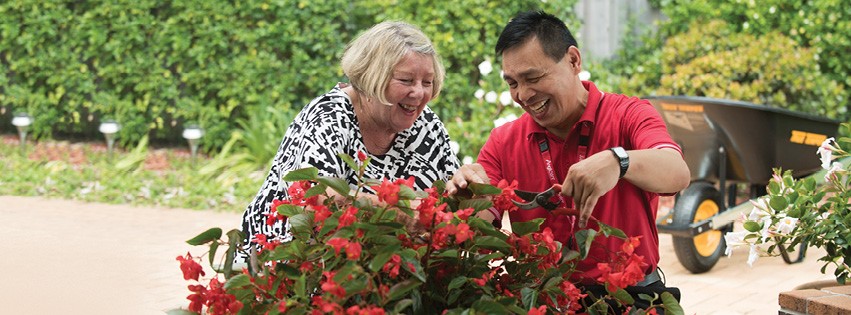
We all know that home care workers are ready to help with the physically demanding domestic duties that get tougher as we age; ensuring the house is vacuumed, hanging out a load of washing, stacking heavy items in high-up cupboards. And the people who make caring for others their calling are also happy to assist with far more personal tasks, such as bathing and grooming.
Yet, reading the recent flurry of news reports about carer neglect may have made you apprehensive about accessing care services for yourself or your family member.
While that’s understandable, it’s important to remember that the overwhelming majority of people who work in home and residential aged care are dedicated, caring individuals who really are keen to make a difference to the lives of older Australians – as the many Starts at 60 readers who’ve worked in the aged care sector frequently attest.
And what we don’t often read in news reports are the countless examples of carers and clients who’ve formed close bonds, of the social interactions that brighten up home-bound clients’ days or of the ways carers go out of their way to ensure clients receive services that are meaningful to them – even if those services don’t fit the textbook definition of home care.
To get an insider’s account of this special relationship, Starts at 60 spoke with Leeane Fleming, who made the career change from hairdresser seven years ago to become a home care worker with Anglicare.
Fleming says her favourite part of working in a hair salon was styling the hair of her older clients, so she decided to work with them full-time as a carer. “I wanted a positive change and [home care work] just fit,” she says.
Leeane says that a simple trip to do grocery shopping can turn into a social occasion, with one of her clients always keen to get the supermarket visit done as quickly as possible so she and Leanne can grab a coffee together at a cafe afterward.
Over the months, the pair have sampled (and scored!) carrot cake in every café they’ve visited. “We’ll say, ‘okay, well I give that one an eight out of 10’,” Fleming says of their outings. “It’s really rewarding.”
The families of senior Australians are well acquainted with the wealth of experience and stories their loved ones have to share – and hearing those stories are a big part of Fleming’s job.
“They’re more than happy to chat and talk a bit about their family, and what they did before, where they’ve lived, stories about growing up on a dairy farm, and the likes,” she says. “And being an ex-hairdresser, I’ve got the gift of the gab as well!”
Where family members aren’t available to listen to those stories, time spent with a carer can be a welcome outlet for a person who lives alone.
“Another lady that I take out for shopping, she doesn’t have a lot of contact with her family,” Fleming reflects. “So, when we get back to her place, we sit and have a nice chat because she misses it. She actually really looks forward to the fortnightly occurrence where she can sit and talk to someone.”
As Starts at 60 community blogger, Robyn Berry Luke, says, although she may not always receive the same home carer during her twice-daily visits, meeting different carers means a change to enjoy a chat with someone new.
“They’re all fantastic and nice people,” she says. “It gives me an opportunity to community with many different people.”
Some of Fleming’s clients have long-standing hobbies or passions that they share with her. “There’s a gentleman with a large rock collection, and he still drives, so he goes out and collects his rocks,” she recounts. “I’ve often spoken to him about it, and he actually makes jewellery out of them, so he shows me the pieces he’s done when I go around.”
Anglicare’s care services cover the expected range – nursing, cleaning, personal care and household assistance such as shopping and meal preparation – but can go far beyond that to whatever area best meets its clients’ needs. Home care can include help continuing with favourite hobbies or activities, providing transport and company at social or entertainment events, even guiding clients as they tackle technology or social media for the first time. And services can be as simple as sitting down for a good chat.
Building up familiarity between carer and client isn’t just beneficial for older Aussies’ mental health, though, as Fleming points out.
“[A client] might not be her perky self that she was the last time you were there, so there may be an underlying problem, she might be unwell,” she explains. “And these things are noted in the in-home records, so that a health issue can be picked up on as soon as possible.”
Fleming reflects on one client with whom she’s particularly close, who Fleming says checks with her every week that she’ll be returning the following week. “I’ve been coming for this long – I’m not going anywhere,” she says of her habitual response.
Fleming says the benefit of a home carer’s company is clearly evident in her clients as their relationship develops. “You can see their demeanour changes because they’re getting the social support that they crave,” she says.

Anglicare Southern Queensland are here to support you at all stages; whether you’re on the path to retirement, in need of some help at home or are looking into residential aged care, we have a range of support services to help you or your loved one with the transition.